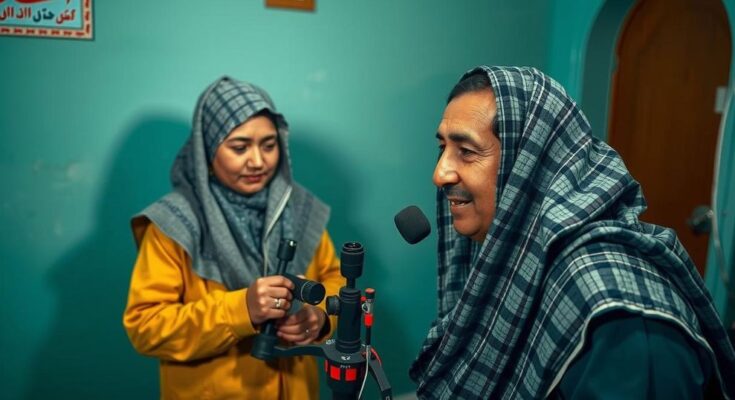Saudi Arabia maintains a neutral stance in the U.S. presidential race, thriving in relations with both Donald Trump and Kamala Harris. Political commentator Ali Shihabi underscores the Kingdom’s aim for U.S. collaboration in resolving regional issues like the Israeli-Palestinian conflict, emphasizing that American involvement is critical for long-term peace. Recent geopolitical developments have created hurdles for Saudi-Israeli normalization discussions, yet the prospect of enhanced U.S.-Saudi security cooperation remains strong.
Saudi Arabia is currently positioned without a clear preference in the upcoming U.S. presidential election, maintaining amicable relations with both leading candidates: Republican Donald Trump and Democrat Kamala Harris. Saudi political commentator Ali Shihabi articulated that the Kingdom’s main objective is to leverage its ties with the United States to address significant regional challenges, such as the Israeli-Palestinian conflict. Shihabi, speaking on the Arab News program “Frankly Speaking,” emphasized the uniqueness of Saudi Arabia’s situation, noting that the Kingdom has equally favorable relations with both political parties at a time when such bipartisan support is uncommon. Although historically more aligned with Republicans, Saudi Arabia’s relationship with Democrats has strengthened considerably in recent years, particularly due to recent global events that have underscored the Kingdom’s strategic importance. The Kingdom’s commitment to promoting a two-state solution is evident, with the establishment of a global coalition aimed at resolving the Israeli-Palestinian conflict. Shihabi argued that American involvement remains crucial for any sustainable resolution, stating that, “America is an essential component and American pressure is an essential component.” He cautioned, however, that the current Biden administration has been less decisive with Israel, which could hinder progress toward peace. A significant moment in the evolving dynamics came with the changes following the October 7 Hamas attack and Israel’s subsequent actions in Gaza, which have dampened prospects for a historic security pact and normalization with Israel. Despite stalled formal agreements, Shihabi believes that enhanced security discussions between the U.S. and Saudi Arabia are solidifying a de facto arrangement. Looking to the future, Shihabi predicted that the next U.S. administration—be it under Trump or Harris—will likely continue to explore normalization talks with Israel due to the Kingdom’s indispensable role in the region. The Arab-American vote, which appears to favor Trump slightly over Harris, reflects dissatisfaction with the Biden administration’s handling of Israeli-Palestinian issues and indicates growing political engagement among Arab Americans. Ultimately, both candidates have placed emphasis on addressing Middle Eastern affairs, with significant implications for the Israeli-Palestinian conflict, underscoring the pivotal role of the United States in shaping not only its own foreign policy but also that of its allies in the region.
The context of this article revolves around Saudi Arabia’s unique diplomatic positioning in relation to the United States, particularly in the backdrop of the forthcoming U.S. presidential elections. Traditionally, Saudi Arabia has favored Republican administrations; however, recent geopolitical events have allowed for improved relations with the Democratic Party. The Kingdom’s strategic significance has risen, especially considering its influence on Middle Eastern stability and its investment in resolving the long-standing Israeli-Palestinian conflict.
In summary, Saudi Arabia finds itself in a fortuitous diplomatic position ahead of the U.S. presidential elections, enjoying robust relations with both major political parties. The Kingdom’s initiatives regarding the Israeli-Palestinian conflict illustrate its commitment to international stability and exemplify the essential role of U.S. engagement in future peace processes. Furthermore, the evolving dynamics within the Arab-American voting bloc signify a growing awareness and potential political influence that may reshape U.S. foreign policy in the Middle East.
Original Source: www.arabnews.com




